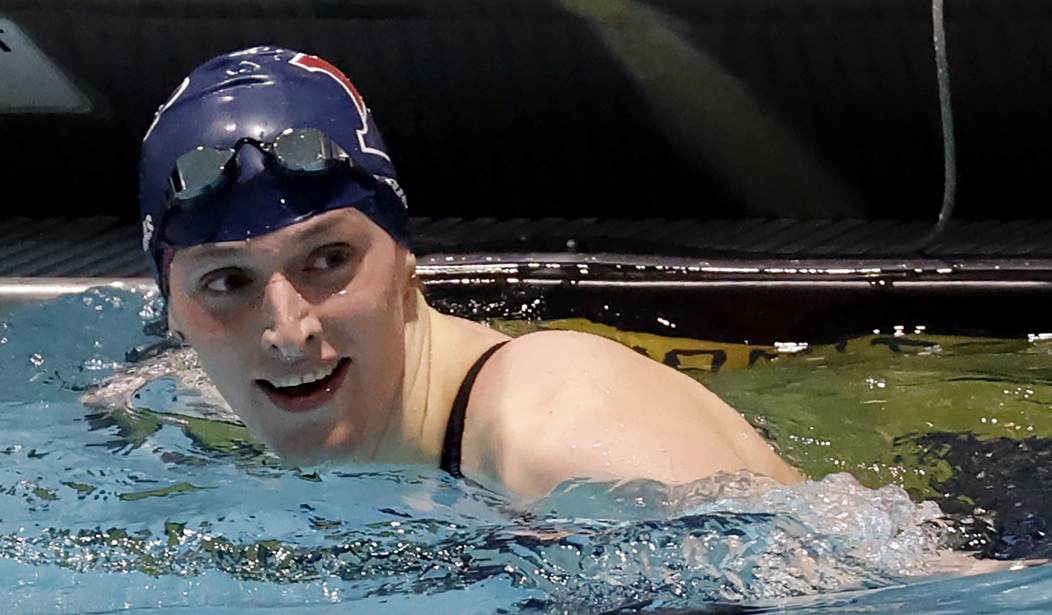Texas Attorney General Ken Paxton announced yesterday that he was suing the NCAA for allowing trans athletes to compete in women's sports. The argument he's making is that by promoting this as women's sports, the NCAA is misleading consumers who expect to see women, and only women, competing.
Paxton said the NCAA violated the Texas Deceptive Trade Practices Act by deceiving fans who want to support sporting events that only include athletes whose female sex was assigned at birth.
Paxton also accused the NCAA of misleading consumers by not identifying which athletes are transgender, and of “jeopardizing the safety and wellbeing of women” by allowing transgender athletes to participate in its sporting events.
“Radical ‘gender theory’ has no place in college sports,” Paxton said in a news release Sunday.
Here's a bit of the court filing which includes a lengthy description of the history of trans inclusion in women's sports.
In 2003, the International Olympic Committee (“IOC”) Medical and Scientific Commission adopted a statement, known as the “Stockholm Consensus,” that permitted biological males to compete in women’s sports provided the athlete: (1) has undergone complete “surgical anatomical changes” including “external genital changes and gonadectomy;” (2) the changed sex is recognized by the “appropriate official authorities;” and (3) the athlete has undergone hormone therapy “for a sufficient length of time to minimize gender-related advantages in sports competition,” which the committee recognized as a minimum of two years...
In 2009, after South African runner Caster Semenya won the World Championships for the women’s 800 meters race, the International Amateur Athletic Federation (“IAAF”) (the international governing body for track and field and other running events) required Semenya to undergo sex testing...
Tests revealed that Semenya was a male with disorders of sex development (“DSD”), despite displaying some physical traits of a female, and that Semenya’s blood “had three times the normal female level of testosterone”—in other words, the normal male range of testosterone...
In response to these testing results, in 2011 the IAAF adopted a Hyperandrogenism Rule, whereby male athletes whose testosterone levels are higher than 10 nmol/L may only compete if they undertake medical treatment to suppress the effect of testosterone in their body, or if they prove that their body is insensitive to androgen.
An Indian track star challenged the new rules in court after being excluded from competition and won. The International Amateur Athletic Federation (IAAF) commissioned a study which concluded that women with concentrations of testosterone above 5 nmol/L had a competitive advantage. That led to a change in the IAAF's policy.
In 2018, relying in large part on the results of the study, the IAAF adopted a Difference of Sexual Development (DSD) Rule prohibiting male athletes recognized by law as either female or intersex from having serum testosterone levels above 5 nmol/L for a period of at least six months prior, and at all times while competing, in women’s 400m races, 400m hurdle races, 800m races, 1500m races, one-mile races and all other track events over distances between 400m and one mile.
The new policy was also challenged in court, in 2019, but this time the IAAF won. But the NCAA adopted the previous standard.
The NCAA has, nonetheless, adopted the same discredited 10 nmol/L testosterone value struck down in the Chand ruling as unfair as the standard permitting males to compete in some of its women’s college sports.
Having argued the technical case, the court filing returns to the claim that the NCAA is misleading consumers who aren't using the woke definition of the word "women."
Most consumers do not believe that “transgender women are women.” Instead, most consumers believe that “women” means biological females...
A recent national survey conducted by a top-rated polling firm found that 79% of respondents said that the definition of “woman” is “adult humans who are female,” with only 16% saying they define “women” as “adult humans who are either female or male and consider themselves women.”...
Consumers reasonably believe that NCAA women’s sports are restricted to biological women because for all of sports history, sports have generally been divided by biological sex, usually with different rules, to promote fairness.
I'm not an attorney so I have no real idea if this is a good case or not, but it's certainly an interesting approach. You have to wonder if, at some point, the NCAA is just going to read the writing on the wall and adopt a standard that protects women's sports because this is an 80-20 issue and they are on the wrong side of it. This isn't the Biden era any longer and the rules his administration was trying to create have been withdrawn. The Trump administration will be heading in a different direction from day one.
Trump pledged to sign a series of executive orders targeting the trans community on the first day of his presidency. The President-elect launched into his “two genders” tangent after telling the AmericaFest crowd that he would sign an executive order to “keep men out of women’s sports.”
At a minimum, the NCAA should update its standard to one that excludes men with an obvious testosterone advantage but it would be a lot easier to simply limit women's competitions to actual women.








Join the conversation as a VIP Member